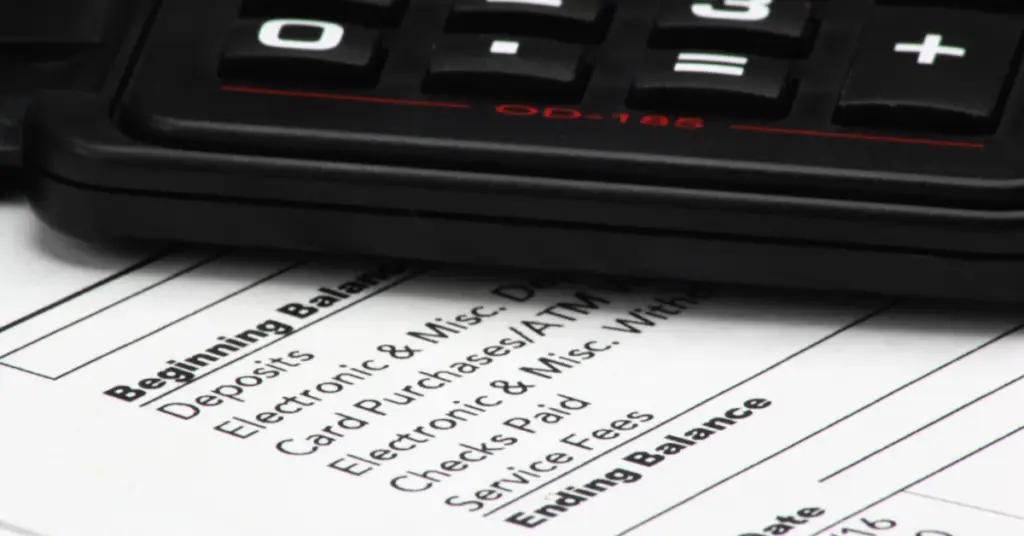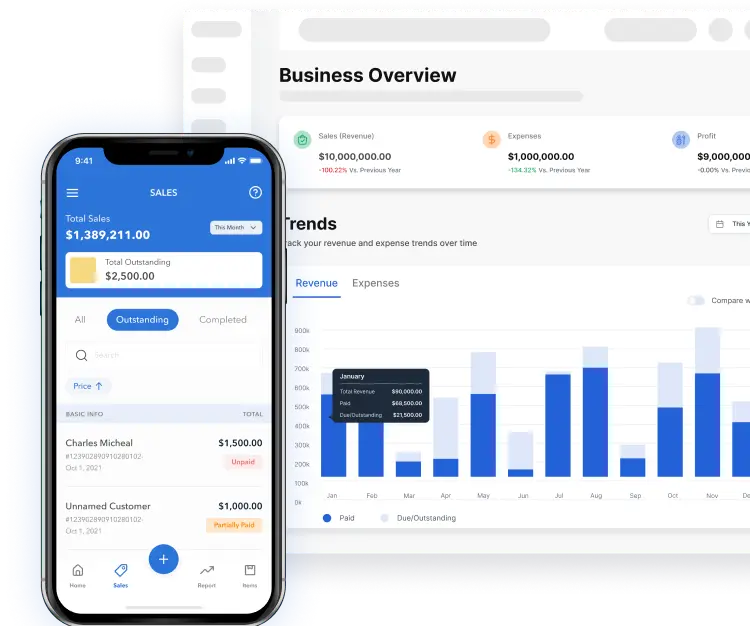Managing your finances effectively is crucial for the success of any business, whether small or large. One often overlooked yet essential aspect of financial management is the reconciliation of bank statements. This process involves comparing your company’s internal financial records with those provided by your bank to ensure that every transaction matches. While it might seem like a routine or administrative task, reconciling your bank statements is pivotal in maintaining accurate financial records, detecting errors, preventing fraud, and ensuring your business remains financially sound. We’ll be discussing:
- What is a Bank Reconciliation Statement
- Why is it Important to Reconcile Your Bank Statement?
- When is it Essential to Have this Reconciliation of Bank Statement?
What is a Bank Reconciliation Statement?

A bank reconciliation statement is a document that compares your business’s internal financial records with those provided by the bank. The goal is to ensure that every transaction in your books matches the transactions recorded by the bank. When discrepancies arise, such as errors in either records or transactions you weren’t aware of, a reconciliation process helps identify and resolve these issues.
Bank reconciliation is a critical accounting practice that can be done manually or using accounting software. It involves verifying that the balance in your accounting records (general ledger) matches the balance reflected in your bank statements.
While it may seem like a routine task, reconciling bank statements provides essential insights into the financial health of your business and helps you avoid potential problems like overdrafts, bounced checks, or even fraud. The reconciliation process typically involves:
- Comparing deposits, withdrawals, and balances between internal records and bank statements.
- Adjusting discrepancies by either updating your records or notifying the bank of any errors.
- Ensuring that all outstanding checks and payments are accounted for.
Why is it Important to Reconcile Your Bank Statements?
Bank reconciliation plays a crucial role in managing your business finances for several reasons:
1. Error Detection
Even the most meticulous business owner or accountant can make mistakes. Bank reconciliation helps catch errors like double entries, missed payments, or transposed numbers. For instance, if your records show that a client paid you $1,000, but your bank statement shows $100, reconciling your bank statement allows you to catch and fix the mistake before it leads to financial issues.
Banks can also make errors in recording transactions, especially with automatic payments, fees, or deposits. Reconciling your bank statements ensures that your account reflects the correct amounts, saving you from unexpected deficits or penalties.
2. Fraud Prevention
Fraud, unauthorized transactions, and theft are major risks for businesses. Regularly reconciling your bank statements ensures you can spot any unusual or unauthorized transactions quickly. By promptly identifying these activities, you can take immediate action to secure your funds and investigate the cause.
For example, if you notice withdrawals you did not authorize, reconciling your statements can prompt a review and lead to early intervention, preventing further losses. Early detection also strengthens your case should you need to dispute fraudulent activity with your bank.
3. Maintaining Cash Flow Accuracy
For a business to thrive, it’s vital to have an accurate picture of its cash flow. Bank reconciliation helps ensure that your cash flow statements are accurate, providing real-time insight into how much money you actually have. By keeping your records aligned with your bank’s information, you can make informed financial decisions, avoid overdrawing your account, and plan future payments and expenses.
For example, an unreconciled bank statement may lead you to believe that you have more money than you actually do, which could result in overdraft fees or bounced checks. Reconciling your statements keeps your financial records up to date and accurate.
4. Compliance with Auditing and Taxation Requirements
Regular bank reconciliation is a vital step in preparing for audits or meeting tax filing deadlines. In the case of an audit, having clean and accurate records will make the process easier and faster. A reconciled bank statement is often required to prove that the company’s financial records match the bank’s records, ensuring transparency and compliance with tax laws.
Without reconciling your bank statements, your financial records may not be audit-ready. This can lead to penalties, fines, and a stressful audit process that could have been easily avoided.
5. Minimizing Overdraft Risks
Businesses often deal with multiple payments, receipts, and automatic withdrawals that can clutter their accounts. Without reconciliation, it’s easy to misspending transactions that could lead to overdrafts. Bank reconciliation enables you to track all the transactions that have cleared your bank and those that are still outstanding, minimizing the risk of an overdraft.
When is it Essential to Have These Reconciliations of Bank Statements?

While reconciling your bank statements should be a regular practice, there are certain key moments when it becomes even more critical:
1. Month-End Financial Close
Many businesses close their financial books at the end of each month. As part of this process, it’s essential to reconcile bank statements to ensure that your monthly financial reports accurately reflect your cash position. Missing this step can lead to discrepancies that impact your profit and loss statements, balance sheets, and overall financial performance.
2. Tax Filing Periods
During tax season, your financial records must be accurate and up to date. Reconciling your bank statements ensures that all income and expenses are correctly recorded and reported to tax authorities. It also minimizes the chance of discrepancies that could trigger an audit or lead to under- or over-reporting your tax liability.
3. Preparation for Audits
If you know that your business will be audited, it’s essential to reconcile your bank statements regularly. Auditors will review your financial records and compare them with your bank statements to ensure there are no discrepancies. Reconciling your statements beforehand can save you from the stress and hassle of trying to correct errors under pressure.
4. After Major Transactions
When your business undergoes significant transactions, such as obtaining a loan, acquiring an asset, or receiving a large payment, reconciling your bank statements ensures that these transactions are properly reflected in both your accounting system and the bank’s records. It also helps prevent errors or unauthorized transactions from going unnoticed.
Common Challenges in Bank Statement Reconciliation

While bank reconciliation is essential, it can sometimes be a time-consuming and complex process. Businesses, especially those with high transaction volumes, often encounter challenges, including:
1. Missing Transactions
One of the most common challenges is missing transactions, either in your internal records or on the bank statement. These could be due to delays in posting deposits, checks, or credit card payments. To address this issue, ensure you account for all outstanding payments or deposits that may not yet appear on the bank statement.
2. Bank Errors
Although less common, banks can make mistakes in recording transactions, such as double-charging fees or misplacing deposits. If you identify such discrepancies during the reconciliation process, promptly notify the bank to resolve the issue.
3. Time Lags
Sometimes, there is a delay between when a transaction occurs and when it’s reflected in your bank account. This can lead to temporary discrepancies that make reconciliation more challenging. For example, a check you issued may not be cashed until the next accounting period, resulting in an imbalance. Ensure you have a method for tracking outstanding transactions.
4. Manual Entry Mistakes
Businesses that still rely on manual bookkeeping often encounter errors, such as double entries, missing entries, or recording incorrect amounts. These mistakes can make reconciliation more difficult and time-consuming. Moving to an automated accounting system can help reduce these manual errors and streamline the reconciliation process.
5. Handling Multiple Bank Accounts
For businesses with several bank accounts, reconciling statements can become more complicated. It’s important to reconcile each account individually and record all inter-account transfers accurately. Using accounting software that integrates with multiple bank accounts can simplify this task.
Conclusion
Reconciling your bank statements is not just an accounting best practice; it’s a crucial step in ensuring the accuracy and integrity of your financial records. Regularly performing bank reconciliations helps detect errors, prevent fraud, maintain accurate cash flow records, and ensure compliance with auditing and tax requirements. Despite some challenges, such as time lags and missing transactions, the benefits far outweigh the difficulties.
Whether you are a small business or a large corporation, bank reconciliation ensures that your financial records are accurate, giving you a clear picture of your cash position. By staying on top of your reconciliations, you minimize the risk of financial mismanagement, maintain good financial health, and gain peace of mind knowing your books are in order.
In today’s digital age, many accounting software solutions offer automated reconciliation features that help businesses streamline the process and eliminate manual errors. No matter how it’s done, the importance of reconciling your bank statements cannot be overstated. It is a vital tool in maintaining the financial well-being of your business and ensuring long-term success.
Related Content






